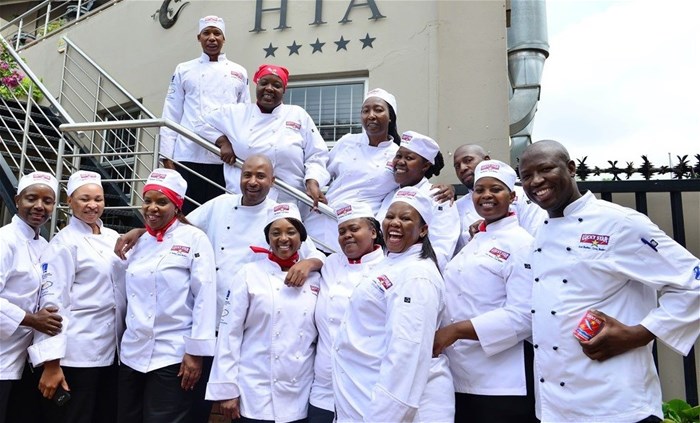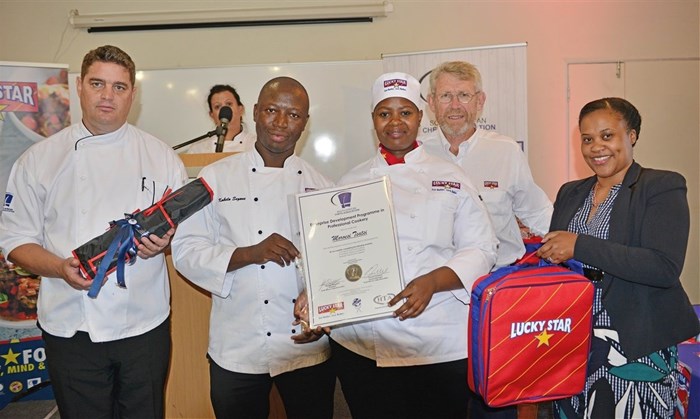
The programme forms part of SA Chefs and Lucky Star’s continued commitment to providing previously disadvantaged individuals with the skills and capacity to certify a new breed of professionally trained caterers.
"Growing skills and development in South Africa is very important to the work that we do at SA Chefs. We are proud and incredibly grateful to work with companies like Lucky Star to grow and fine-tune the operations of more entrepreneurs, which is critical to bridging the unemployment gap in this country," says Elsu Gericke, head of professional body and skills development for SA Chefs. "It is our duty as a South African association in the hospitality industry to reach out and assist where possible in equipping previously disadvantaged individuals with the relevant skills to ensure that their catering companies reach their full potential."
The successful initiative targets a market of small to medium, black-owned, catering companies who are registered as Sole Proprietors or Closed Corporations and that are generating revenue by providing a catering and function service in townships and surrounding areas. The programme forms part of greater efforts to allow each caterer to maximise opportunities, create employment, address health and safety issues in production and contribute to South Africa’s economy, furthermore raising both the standard of business ethics and the quality of hospitality and catering sectors.
The deserving individuals demonstrate tremendous growth potential which is why the programme incorporates enterprise development and social investment responsibilities to ensure the long-term sustainability for each successful graduate and their catering company.

One graduate that is reaping the benefits of the programme is Nothemba Nkosi who is involved with her family business, Tshipi Noto Funeral Home. "Dealing with the loss of a loved one is an emotional time for a family and I wanted to use my skills to incorporate catering to our service offering. I am so grateful to the programme for all the invaluable lessons that I learnt, and I feel empowered from a business and practical point of view. I plan to use what I have learnt to help other caterers and people in my community that don’t know how to cook," she explains.
When graduates begin to thrive, the wider community and economy automatically benefit. By continuing to invest in people in the industry, we are providing them with the opportunities to reach their full potential and pave the way for a brighter future. It is important to note that this programme can form part of any companies BBBEE Scorecard, SRI programme and bets investment of direct marketing.